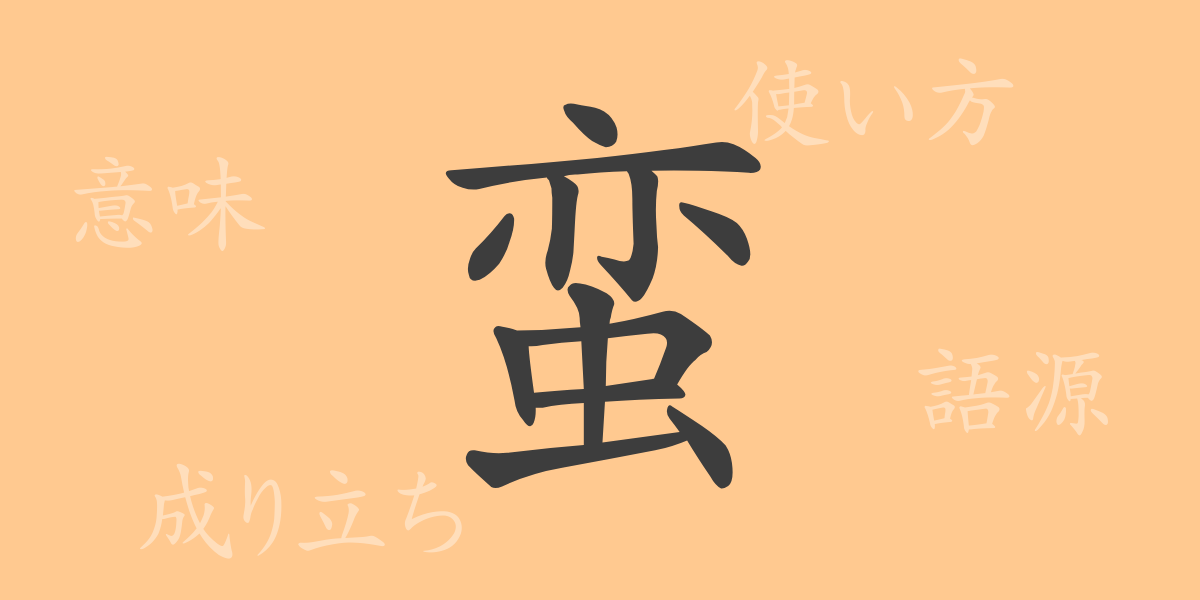The beauty of the Japanese language is also reflected in its unique characters, known as kanji (かんじ). Each kanji is not just a character, but it encapsulates history, culture, and philosophy. By understanding its profound background, one can deepen their comprehension of Japanese. The kanji “蛮” (ばん), which is included in Japan’s list of commonly used kanji, is not widely known for its origin, meaning, and usage. In this article, we will delve into the formation of “蛮,” its modern usage, and even explore idioms and proverbs that include this character.
The Origin of 蛮 (ばん)
The kanji “蛮” (ばん) was used in ancient China to refer to non-Huaxia civilizations, or the surrounding tribes. This character combines the “虫” (むし) radical with “殳” (ほこつくり), where the altered form of “虫” can be seen in the upper part of “蛮.” This reflects the central dynasty’s perspective of viewing these tribes as barbaric and uncivilized, embedding a history of prejudice and discrimination within the character itself.
The Meaning and Usage of 蛮 (ばん)
In modern Japanese, the meaning of “蛮” (ばん) primarily conveys notions of “barbaric” or “uncivilized.” This stems from its origin, typically used to describe something uncivilized or coarse, carrying a negative connotation. However, in contemporary usage, there is a growing awareness to avoid this term due to its discriminatory implications.
Reading, Stroke Count, and Radical of 蛮 (ばん)
The usage of the kanji “蛮” (ばん) also has distinct readings and forms.
- Reading: In on’yomi (おんよみ), it is read as “ban” (ばん), and it has no kun’yomi (くんよみ).
- Stroke Count: It consists of 12 strokes in total.
- Radical: The radical is “虫” (むし).
Idioms, Phrases, and Proverbs Using 蛮 (ばん) and Their Meanings
There are not many idioms or phrases that include “蛮” (ばん), but here are a few examples:
- 蛮勇 (ばんゆう): Reckless courage, where one risks their life without thinking.
- 蛮行 (ばんこう): Barbaric acts or inhumane behavior.
- 蛮声 (ばんせい): Shouting loudly or such a voice.
Summary of 蛮 (ばん)
The kanji “蛮” (ばん) reflects a historical background from ancient China, and its meaning has evolved over time. While its usage today requires caution, it remains an essential element for a deep understanding of Japanese. Even a single kanji can offer a glimpse into the richness and complexity of the Japanese language. Learning kanji means engaging with not just words, but also the culture, history, and thoughts of people.

























